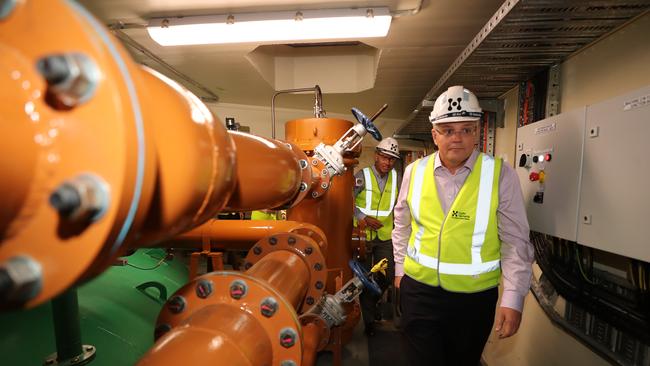Morrison’s $67m embrace of renewables
Scott Morrison will pump an extra $67 million into energy efficiency initiatives under his new ‘practical’ climate change policy.

Scott Morrison will pump an extra $67 million into energy efficiency initiatives under the Coalition’s new “practical” climate change policy, as the government embraces renewables ahead of fossil fuels.
Businesses will be able to apply for grants of up to $25,000, and up to $12,500 for community groups, to upgrade their electrical equipment and improve their energy management, under a $50m Energy Efficient Communities Program.
A further $17m will be spent improving the energy efficiency of commercial buildings and schools, and helping households become more energy-efficient.
The measures follow a $2 billion top-up for Tony Abbott’s direct action fund to tackle climate change, and a further $1.4bn equity injection in the Snowy 2.0 pumped hydro project.
The government has also announced $86m towards a new Tasmanian hydro power project, Battery of the Nation, and a new Bass Strait transmission link.
In Tasmania yesterday, the Prime Minister said the government’s support for big hydro projects was vital and economically prudent, as Australia’s energy market “continues to transition towards renewables”.
“If you want to have a renewables future, you’ve got to have big batteries like this, and the commercial element of that is quite compelling and that’s what the numbers so far have shown,” he said.
“We get the economic harvest, we get the jobs harvest, we get the energy harvest, and we get the renewable and the sustainable energy harvest that delivers on our environmental commitments.”
The opposition said the government’s commitment to hydro power “only make sense under Labor’s renewable energy policies”.
Energy Minister Angus Taylor said the new energy efficiency measures would cut energy bills while lowering carbon emissions.
“We know that businesses and community groups are struggling under the weight of high power prices,” he said.
“That’s why we’re taking strong steps to ensure they get the practical support that they need to reduce their energy use without reducing productivity.”



